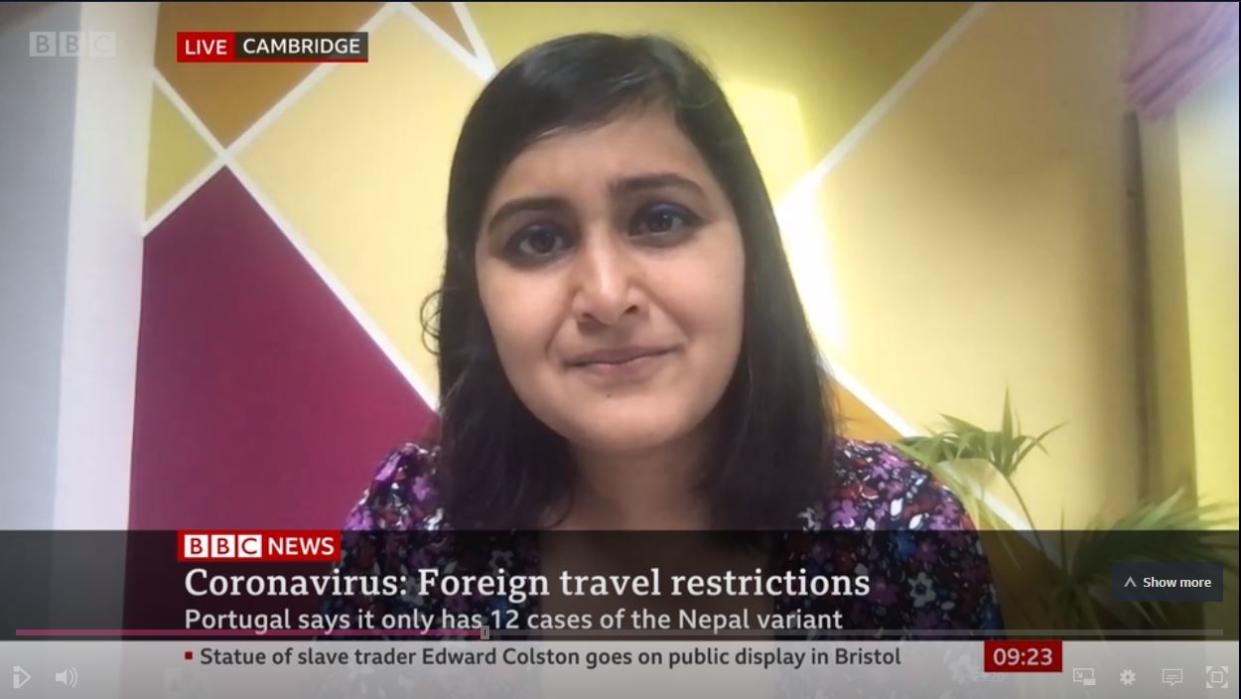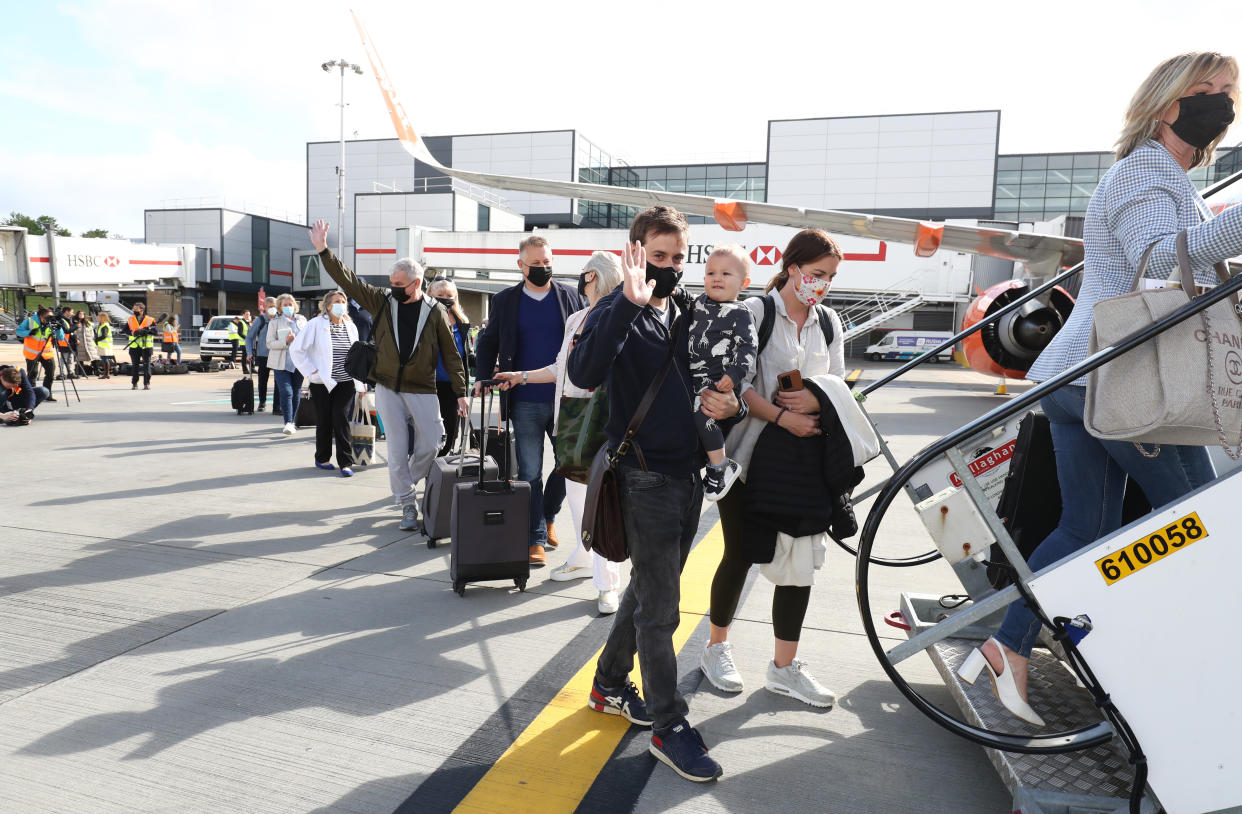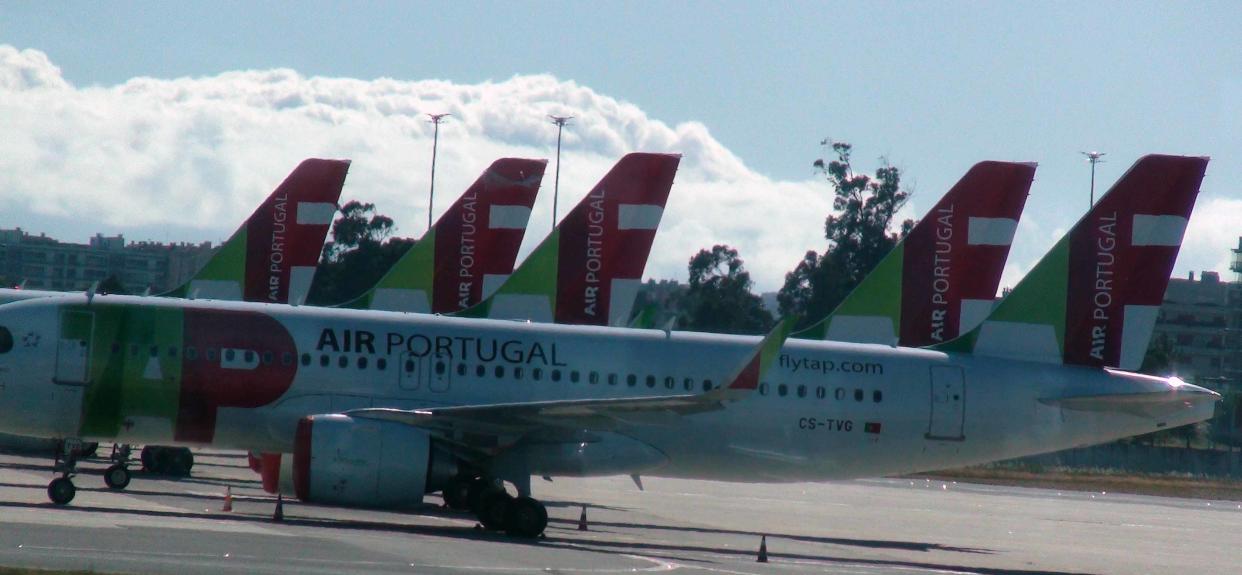Scientist nearly 'loses it' on BBC over 'ridiculous and unethical' response to Indian variant

A leading scientist has apologised for "nearly losing it" after branding the UK government's border control policy "ridiculous" and "unethical".
Epidemiologist Deepti Gurdasani gave a passionate speech on BBC News on Friday while discussing the government's decision to change Portugal's status to amber on the UK travel list, meaning that from Tuesday anyone returning from the country will have to quarantine at home for ten days.
“It's very clear that our border policy is not based on any sort of evidence, the green, amber, red lists are all ridiculous," she said.
Gurdasani, of Queen Mary University London, said that evidence of mutations of the Delta variant - previously known as the Indian variant - that possess properties of the Beta variant - formerly the South African variant - are "already present" in the UK.

She said: "That's why it's critical to actually contain transmission and control import of cases from borders because the situation - which is not very good now - could get worse if we let this continue."
Discussing the so-called Nepal variant - a mutation of the Delta variant - Gurdasani warned it is "more transmissible, more severe, and has significant escape against vaccines".
She added: "We have to have better border policies and better transmission containing policies to be able to deal with this".
When asked about comments made by Sir John Bell, professor of medicine at Oxford University, who suggested that "a bit of balance" was needed when considering whether to continue with the roadmap out of lockdown, Gurdasani became animated with her reply.
Prof Bell said on Thursday: "“If we scamper down a rabbit hole every time we see a new variant, we’re going to spend a long time huddled away, so I think we do need to get a bit of balance in the discussion and keep our eyes on the serious disease that we’re trying to prevent."
However, Gurdasani said: "I don't agree with him at all.
"The risk of the Delta was hugely minimised until we found out it was more transmissible, can escape vaccines, and is more severe. Now it's heading us into a third wave and possibly another lockdown.
"The situation we are in now was not inevitable, it was completely avoidable. Our government did nothing to avoid it and we're making the same mistakes again."
Gurdasani said the UK was "not only importing" variants but "exporting across the globe" and suggested that the UK allowed a third wave to spread across Europe as the Kent variant was carried from the UK on to the continent.
"We're happy to send that with people on holidays to expose to people in other countries who don't have the same access to vaccines.
"To me that's completely unethical."

Tweeting after her appearance, Prof Gurdasani wrote: "I think I probably lost it on BBC News today - I seriously can't believe we're still talking about green lists, red lists & having senior UK scientists minimising the threat posed by variants at this point."
The UK government has repeatedly insisted that the decision on whether to lift final lockdown measures in England on 21 June will be made after data on infection, hospitalisation, vaccination and new variants are assessed.
Prime Minister Boris Johnson has, however, warned that the spread of the Delta variant could delay the final stage of his 'roadmap' out of lockdown.
"I don't see anything currently in the data to suggest that we have to deviate from the roadmap, but we may need to wait," he said last week.
Vaccines Minister Nadhim Zahawi said on Sunday: "We will share the evidence with the country on the 14th of June to basically explain exactly where we are on infection rates, on hospitalisation, and of course, sadly, on deaths.
"We have to be cautious; we have to look at the data and share it with the country."
Watch: Coronavirus in numbers - UK cases rise by 6,238


